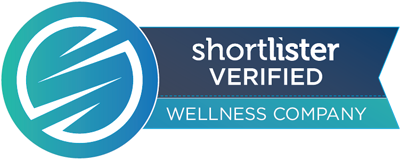
The feeling of missing out, otherwise known as FOMO, affects the careers we choose, where we live, and how we work. The rise of social media and the internet has exposed many professionals to activities, work environments, and organizations they would have never seen before. This increased visibility has made it much easier for employees themselves to experience FOMO, especially when it comes to company benefits. What may have once seemed optional in terms of workplace initiatives is now essential. Learning how to tackle FOMO and implement workplace wellness can help keep your company attractive while also saving money on costs like employee health insurance.
 Workplace FOMO is a reality that employers cannot overlook for many reasons, one of which is employee turnover. A recent study conducted by a group of psychology departments of American universities found that FOMO contributed to notable costs in professional environments. The study results showed that workplace FOMO actually predicted work burnout as well as message checking behaviour. Both of these outcomes are incredibly detrimental when it comes to cultivating a healthy and productive work environment.
Workplace FOMO is a reality that employers cannot overlook for many reasons, one of which is employee turnover. A recent study conducted by a group of psychology departments of American universities found that FOMO contributed to notable costs in professional environments. The study results showed that workplace FOMO actually predicted work burnout as well as message checking behaviour. Both of these outcomes are incredibly detrimental when it comes to cultivating a healthy and productive work environment.
Burnout, directly tied to employee wellbeing, can cause employees to develop negative attitudes towards their place of employment and consider occupational opportunities that exhibit better work conditions. This, of course, is the danger of high workplace FOMO and why benefits like workplace wellness are so essential for developing strong employee retention. But workplace wellness can do more than just retain employees; it can also help organizations save costs on other health-promoting benefits.
Since the beginning of the 21st century, wellness programs have been under scrutiny for their return on investment, with some business leaders questioning if workplace wellness is a robust economic investment. They couldn’t be more wrong. In fact, there’s a notable cost for companies that do nothing in this area.
In 2019, the average cost of employer-sponsored health insurance for single coverage annual premiums in the United States was $7,188. For family coverage, that number was over $20,000. Taking into account the number of employees who qualify for health insurance, the costs can be massive. According to a 2013 Gallup Study, employees who display a high level of ‘wellbeing’ have about 41% less health-related costs associated with them when compared with employees who are struggling. Being able to supplement health insurance coverage with workplace wellness could potentially save corporations millions of dollars a year in premiums. With dedicated workplace wellness programs, employers can facilitate improved profit margins while still combating company FOMO.
However, not all wellness programs are created equally. Workplace wellness can only be successful if both employees and leaders are engaged with the program
One of the greatest benefits of a dedicated, digital workplace wellness program is its ability to promote healthy habits amongst its users regardless of location. Apps like Sprout, drive further engagement through gamification. Employees earn points for participation, unlock badges and enjoy a little friendly competition on the leaderboard. Team challenges, social streams and recommended goals contribute to helping employees to reach their wellness goals. The platform’s social recognition capabilities can also be combined with Sprout’s integrated rewards solution, allowing employees to redeem points for meaningful rewards, including gift cards, insurance premium reductions, or charity donations, etc. Sprout’s just-in-time communications and monthly programming give employees the motivation and tools to develop health-promoting habits they might otherwise be unmotivated to reach.
FOMO can undermine an organization’s ability to retain top talent to stay competitive and profitable. Discover how Sprout can enable wellness and drive employee engagement for your organization.
